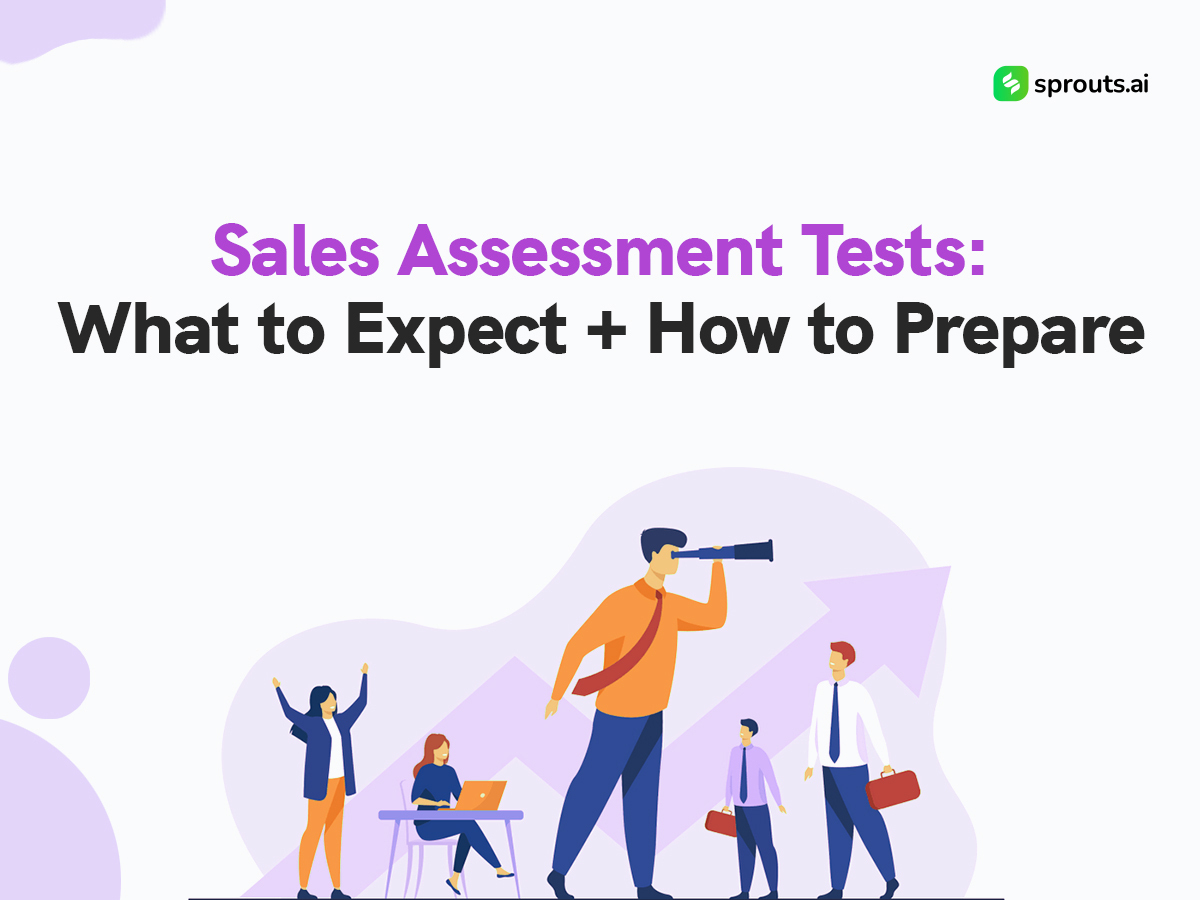If you’re applying for a sales job, you might have to face a sales assessment test as part of the hiring process. This is a standardized test that evaluates your sales skills, personality, and cognitive abilities. It can be a daunting challenge, especially if you don’t know what to expect or how to prepare. But don’t worry, we’re here to help you ace your sales assessment test and land your dream sales job. In this blog, we’ll explain what a sales assessment test is, why companies use it, what kinds of questions you might encounter, and how to prepare for them. By the end of this post, you’ll have a clear idea of what to expect and how to prepare for a sales assessment test. Let’s get started!
Understanding Sales Assessment Tests
Sales Assessment Tests are designed to assess various aspects of a candidate’s suitability for a sales role. These tests are carefully crafted to evaluate the candidate’s technical knowledge, interpersonal skills, problem-solving abilities, and emotional intelligence. Here’s what you can typically expect from these assessments:
- Personality Assessments: These tests gauge your natural tendencies, communication style, and interpersonal skills. Expect questions that explore your preferences in teamwork, leadership, and handling challenges. Employers use this information to determine if your personality aligns with the requirements of the sales role and the organization’s culture.
- Cognitive Abilities Tests: Assessments of cognitive abilities evaluate your critical thinking, problem-solving, and decision-making skills. These tests may include numerical, logical, and verbal reasoning sections to measure your analytical prowess.
- Sales Aptitude Tests: These tests focus specifically on skills relevant to sales, such as prospecting, negotiating, and closing deals. They assess your understanding of the sales process, ability to handle objections, and strategic thinking in a sales context.
- Situational Judgment Tests: These tests present realistic scenarios that a sales professional might encounter. Your responses are analyzed to assess your decision-making process, interpersonal skills, and ability to handle challenging situations.
- Role-specific Assessments: Some companies may include role-specific assessments tailored to the particular sales position you are applying for. This could involve case studies, product knowledge assessments, or sales simulations.
How to Prepare for Sales Assessment Tests
Now that you have an overview of what Sales Assessment Tests entail let’s explore strategies to prepare for them effectively:
- Understand the Job Role: Before diving into preparation, ensure you clearly understand the specific requirements of the sales role you are applying for. Review the job description and identify key skills and traits the employer is seeking. This will guide your preparation and help you focus on areas most relevant to the position.
- Review Basic Sales Concepts: Refresh your knowledge of fundamental sales concepts, such as the sales funnel, customer relationship management (CRM), and different sales methodologies. This foundational knowledge will provide a solid base for more advanced questions you might encounter in the assessment.
- Practice Cognitive Abilities: Since cognitive abilities tests are common in sales assessment tests, dedicate time to practicing numerical, logical, and verbal reasoning exercises. There are numerous online resources and practice tests available that can help sharpen your analytical skills.
- Enhance Sales Skills: Strengthen your sales skills by practicing common sales scenarios. Role-playing exercises with a friend or mentor can simulate real-world situations, allowing you to refine your approach to handling objections, negotiating, and closing deals.
- Familiarize Yourself with Personality Assessments: Personality assessments are challenging to prepare for, as they aim to capture your genuine traits. However, reviewing common personality traits valued in sales, such as assertiveness, resilience, and adaptability, can help you understand what employers may seek.
- Situational Judgment Practice: To prepare for situational judgment tests, analyze various sales scenarios and consider how you would respond. Focus on demonstrating problem-solving skills, ethical decision-making, and customer-centric thinking in your responses.
- Research the Company: Gain insights into the company’s values, culture, and expectations. This knowledge will help you tailor your responses to align with the organization and demonstrate your genuine interest in the role.
- Time Management Skills: Sales Assessment Tests often have time constraints. Practice managing your time efficiently during practice tests to ensure you can complete the assessment within the allotted time frame.
- Stay Calm and Positive: Approach the assessment with a positive mindset. Remember that Sales Assessment Tests are designed to evaluate your potential fit for the role, and a positive attitude can reflect well on your candidacy.
Sales Assessment Tests are a valuable tool for employers seeking top-notch sales professionals. By understanding the various components of these assessments and preparing strategically, you can increase your chances of success. Approach the preparation process with dedication, focus on honing your technical and interpersonal skills, and showcase your genuine passion for the sales profession. As you get on this journey, remember that every step of the preparation process is an opportunity to grow and develop as a sales professional. Good luck!

